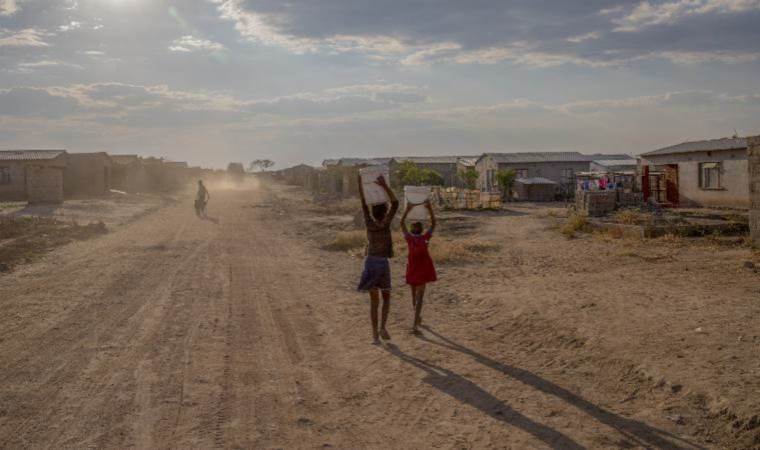United Nations Food Security report released: 582 million people will face deadly hunger
The United Nations has released its annual Food Security and Nutrition report, revealing that food security has deteriorated over the past four years and that wars are the primary cause of global hunger.

According to the Food Security and Nutrition report, eradicating hunger worldwide by 2030 is becoming an "unreachable goal." The accessibility of food has worsened significantly since the United Nations set the goal of ending hunger back in 2019.
The report highlights that there has been no improvement in global hunger over the last four years. The main cause of increasing hunger is cited as the intensitifying regional conflicts.
ONE IN ELEVEN FACES HUNGER
The annual report, published on Wednesday, states that due to wars, climate change, and economic crises; approximately 733 million people faced crippling hunger in 2023. If no radical changes are made, around 582 million more people will face deadly hunger over the next decade. Currently, one in eleven people worldwide and one in five in Africa are facing severe hunger.
The report identifies regional conflicts as the leading cause of global hunger, accounting for 36 percent of the issue, followed by high income inequality at 27 percent.
HEATING CONFLICTS
The war between Ukraine and Russia has significantly impacted Ukraine's agricultural industry. Before the war, Ukraine was known as the 'Breadbasket of Europe'
The humanitarian organization World Vision reports that 8.6 million people in Sudan and 1 million in Somalia are on the brink of starvation. One of the primary reasons for this is the disruption of agricultural products from Ukraine reaching these regions.
Meanwhile, the people of Gaza are struggling with severe hunger. The United Nations reports that 495,000 Palestinians in Gaza are facing devastating hunger, a number expected to rise to 1.1 million in the coming months. A UN report published in June indicates that about one-fifth of Gaza's population goes without food and water for more than three days at a time.
INSUFFICENT GLOBAL AID
David Laborde, a division director at the FAO who helped prepare the study, said that while some regions have made progress, the overall global situation has worsened. Laborde stated, "We need to change our approach to be better coordinated, increase the number of expert volunteers, and make the right decisions about what to do and where."
Laborde also noted that 'international aid for food security amounts to $76 billion annually', which is only 0.07% of the world's annual economic output.
Despite regional variations, hunger continues to rise in Africa due to population growth, wars, and climate change. Hunger rates in Asia have not seen significant changes, while Latin America remains the only region where hunger has decreased.
Most Read News
-
 US Army says 3 soldiers found dead in Lithuania after ve
US Army says 3 soldiers found dead in Lithuania after ve
-
 French presidential front-runner Le Pen vows to challeng
French presidential front-runner Le Pen vows to challeng
-
 China discovers 100-million-ton crude oil reserve in Sou
China discovers 100-million-ton crude oil reserve in Sou
-
 Germany’s Baerbock announces $12B military aid package f
Germany’s Baerbock announces $12B military aid package f
-
 Russia, Ukraine trade accusations over renewed strikes o
Russia, Ukraine trade accusations over renewed strikes o
-
 Khamenei warns of ‘firm retaliation’ to any ‘external ag
Khamenei warns of ‘firm retaliation’ to any ‘external ag
-
 Finland plans to quit landmine treaty: President
Finland plans to quit landmine treaty: President
-
 Ukraine says it carried out 1st round of consultations w
Ukraine says it carried out 1st round of consultations w
-
 Death toll from Myanmar earthquake surpasses 2,700
Death toll from Myanmar earthquake surpasses 2,700
-
 Gaza death toll nears 50,400 as Israeli army kills 42 mo
Gaza death toll nears 50,400 as Israeli army kills 42 mo













